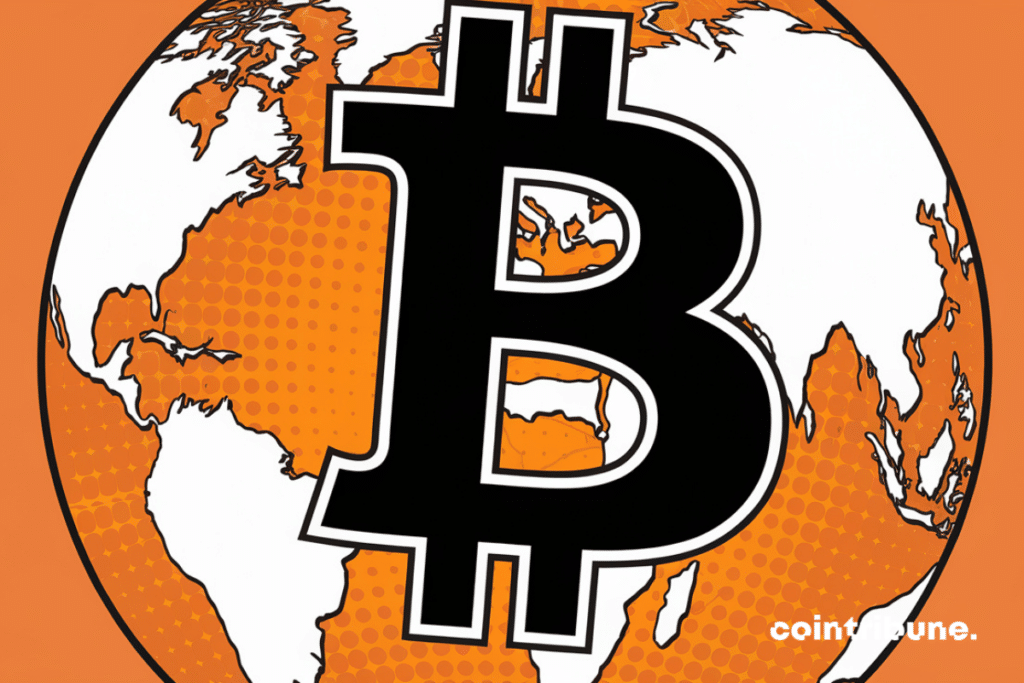VANECK: Three of the six new members of BRICS – 🇦🇪 UAE, 🇦🇷 Argentina and 🇪🇹 Ethiopia – are mining Bitcoin with government resources.
— Bitcoin News (@BitcoinNewsCom) October 28, 2024
Russia's Sovereign Wealth Fund is investing in Bitcoin mining throughout BRICS countries with the goal of settling global trade in Bitcoin. pic.twitter.com/Nu7Ws8JI2x
A
A
The BRICS Mine Bitcoins
Thu 31 Oct 2024 ▪
6
min read ▪ by
Getting informed
▪
Investissement
Will the BRICS embrace bitcoin? This is at least the thesis of the head of research at the investment firm VanEck.

The BRICS are mining bitcoins
Matthew Sigel stated on CNBC that the BRICS are very closely interested in bitcoin:
“The GDP of the BRICS is now greater than that of the G7. And among the new members, three of them, Argentina, the United Arab Emirates, and Ethiopia, are mining bitcoins using government resources”, he suggested.
To be honest, Argentina has not joined the BRICS. But it is true that its public electricity company YPF has partnered with the American miner Genesis Digital Assets to take advantage of gas from oil fields that would otherwise be flared.
The sovereign fund of the United Arab Emirates has allied with the miner Marathon. The latter manages 400 megawatts in Abu Dhabi, which is about 3% of the global hashrate. Ethiopia has also jumped in, leveraging its large hydropower surpluses.
And Russia? “The sovereign fund of Russia will invest in regional initiatives to build infrastructures useful for artificial intelligence and the bitcoin industry, the idea being to conduct international transactions in bitcoins”, Matthew Sigel stated.
It should be noted that the Russian Parliament recently voted in favor of a legal framework favorable to the bitcoin industry. According to the CEO of the Russian exchange Kickex Anti Danilevski, Russia produces 17% of the global hashrate.
The Central Bank of Russia also launched in September an experimental platform for cryptocurrency payments to circumvent sanctions (Bitcoin and Stablecoin). Russia is likely waiting for the United States to officially endorse bitcoin before revealing their enthusiasm openly.
Speaking of the United States
Bitcoin has been the special guest of this presidential election. Aware that tens of millions of voters are investing in bitcoin, the Republican candidate has rallied to the cause.
A victory this Tuesday, November 5, would be auspicious as Donald Trump has promised to create a “strategic reserve of bitcoins”. To be honest, he has mainly committed to not selling the 200,000 bitcoins that the government already holds (due to judicial seizures).
However, several Republican senators have prepared a bill aimed at building a reserve of one million bitcoins. Regardless, a Republican victory will very likely prompt many countries to seriously consider that bitcoin could become the reserve currency of the 21st century.
Let us recall that it is the only currency that exists in absolutely finite quantity, unlike gold. It is already mined two months of bitcoins for every ounce of gold (S2F ratio). It will even be four times less in 4 years, 8 times less in 8 years, 16 times less in 12 years, etc.
The stateless bitcoin has all the assets to facilitate international exchanges. The CEO of the miner Marathon said nothing else last week during a conference in Dubai:
“Why have two presidential candidates highlighted the notion of a strategic reserve of bitcoins [Trump and Kennedy]? For the same reason we have a strategic gold reserve. If bitcoin’s share of international transactions increases, which it will, it falls to the government to hold a large reserve of BTC in case we observe a boycott of the dollar by other nations”.
The greenback is no longer effective
The BRICS have the clear intention to get rid of the dollar. Let us recall that two member countries (Russia and Iran) have been disconnected from the SWIFT network. Not to mention the freezing of 300 billion euros and dollars belonging to Russia.
There is no doubt that the BRICS will eventually trade without the dollar. China and Russia, for instance, trade entirely in their national currencies and their own version of the SWIFT system (CIPS and SPFS).
That said, this system has its limits. We recently demonstrated this when Russia refused Indian currency as payment for its oil. The reason being that the rupee is a poor store of value and that India produces very little of interest for the Russian market.
In other words, the BRICS will not be able to avoid a universal store of value. Some countries will always have trade surpluses that will need to be placed somewhere, preferably in solid assets.
Gold played this role before the end of the Bretton Woods agreements in 1971. The problem is, it is very difficult to make payments in gold. It’s long and very expensive. In contrast, it is possible to conduct transactions of any amount for virtually nothing with bitcoin. These transactions are also instantaneous and can be done at any hour.
That the United States buys bitcoins first is probably the price to pay to finally see the emergence of a neutral international monetary system. In this system, bitcoin becomes the absolute and unseizable store of value par excellence. As in the days of the Gold Standard, it is about trading on equal terms, without “exorbitant privilege”.
Maximize your Cointribune experience with our "Read to Earn" program! For every article you read, earn points and access exclusive rewards. Sign up now and start earning benefits.
A
A
Bitcoin, geopolitical, economic and energy journalist.
DISCLAIMER
The views, thoughts, and opinions expressed in this article belong solely to the author, and should not be taken as investment advice. Do your own research before taking any investment decisions.